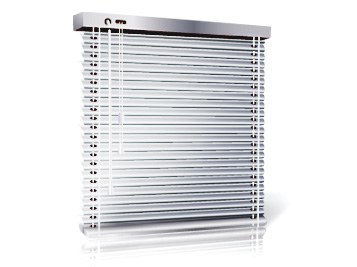The history of the origin of the word
In linguistics the word "blind" has a folk etymology. According to her, in the middle ages, a jealous French men leaving the house closed the Windows in your home with special devices that were the predecessors of modern blinds and served to hide the beauty of their wives the envious looks from passers-by. Also, according to some sources, French men adopted this device from the owners of harems, they colonized the Muslim countries that hide their numerous wives from prying eyes, but allowed them to observe what happens on the street.
The inflection of the word "blind"
The word "blind" in the Russian language is not declined for case and number. It is important to note that to use the word "blind", as in the neuter: "new blinds", and in the plural: "new blinds".
The semantic properties of the word "blind"
A louver is a device allowing to adjust the illumination of the room and the noise from the outside air. It consists of interconnected vertical and horizontal plates.
The word "blind" has no antonyms and has one synonym: "Venetian shutters".
The word blinds has one hypernym: "adaptation"
Colloquial variant of the accent
In ordinary life, often found the emphasis in the word "blinds" on the first syllable. This leads to serious changes in the morphological and syntactic properties of words. The word "blind" with the accent on the first syllable has a feminine, third declension, and may be used only in the plural. As a consequence, the word "blind" begins to change in cases.
Nominative case — blinds
Genitive — blinds
Dative — blinds
Accusative — blinds
Instrumental — blinds.
Prepositional — blinds
The formation of adjectives from the word "blinds"
Adjectives from the word "blind" can be formed of any kind: "louver, louver, louver". According to the large explanatory dictionary there is an important feature of the formation of the adjective from the word "blinds", which is that there are two correct version of the formation of the adjective from the word "blinds": "Louvre" and "zhalyuznye". In the second case, the emphasis is transferred from the third syllable to the first.
It is worth noting that a high probability that in connection with the ongoing reforms aimed at the simplification of the Russian language in the near future, vernacular version of the stress in the word "blind" will be as correct as the version with the accent on the first syllable.
